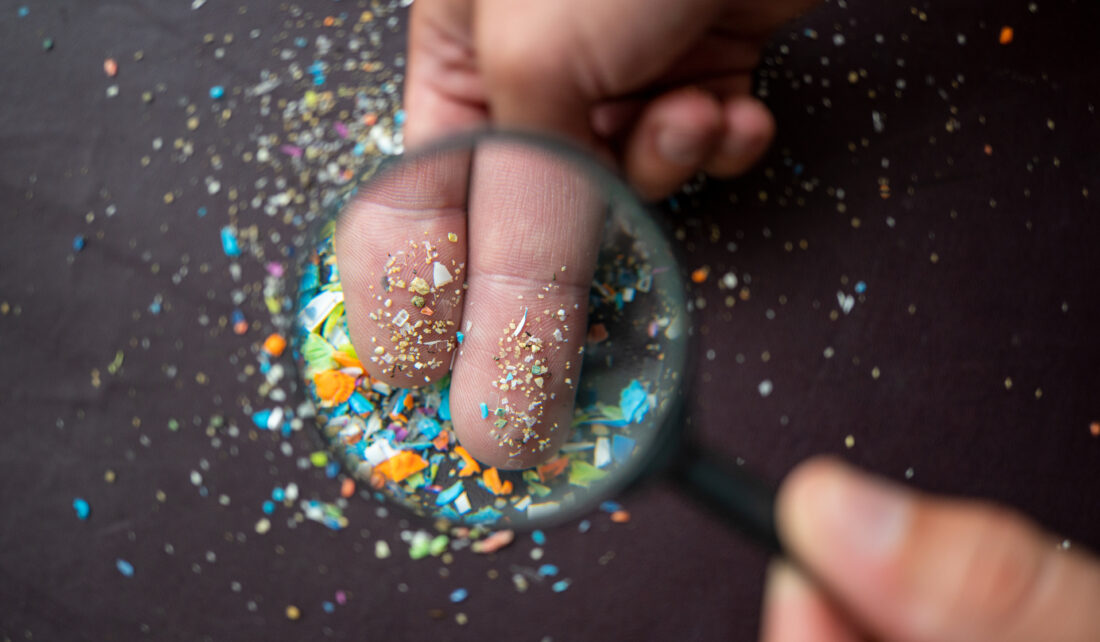
Microplastics have been found in the water just about everywhere, as well as in fish and other organisms. At this point, the effects these microplastics are having on fish larvae growth and development, as well as their behavior, isn’t well understood. Nor is any combined impact with other known contaminants.
An Illinois-Indiana Sea Grant faculty scholar set out to gain some insights on these issues and found that fathead minnow larvae are more impacted when their parents have been exposed to microplastics rather than when they ingest it themselves.
Jessica Ward, an animal behavior scientist at Ball State University and graduate student Kenzie Persinger evaluated the impacts of microplastics and a common environmental estrogen on early life stages of the fathead minnow. (Fathead minnows are one of EPA’s model species for toxicology research and are widely used in lab work.)
“One of the main questions we hoped to answer was whether exposing parental fish to microplastics, as well as microplastics associated with endocrine disrupting chemicals, showed downstream behavioral effects in offspring,” said Ward.
The contaminants were introduced through the fish’s diet in amounts that reflect what they would likely experience in the real world. Adult minnows were exposed to microplastics alone or along with estrogen and then allowed to spawn.
After hatching, half of these larvae received continued exposure for 21 days and both this group and the unexposed control group were tested in how they performed in swimming trials.
The researchers measured a significant overall effect on fathead minnow offsprings’ swimming performance when their parents were exposed to microplastics, with or without estrogen. These larvae showed more hyperactive behavior.
“Compared to the control group, the larvae swam farther and faster, which is an indicator of hyperactive behavior,” said Ward. “Hyperactivity is thought to increase the probability of predation.”
The researchers observed no further changes in larvae that received more exposure after hatching, and no significant effects were observed from larvae only exposed after hatching.
“This suggests that parental exposure has a stronger effect on offspring behavior than direct exposure of the offspring themselves,” said Ward.

